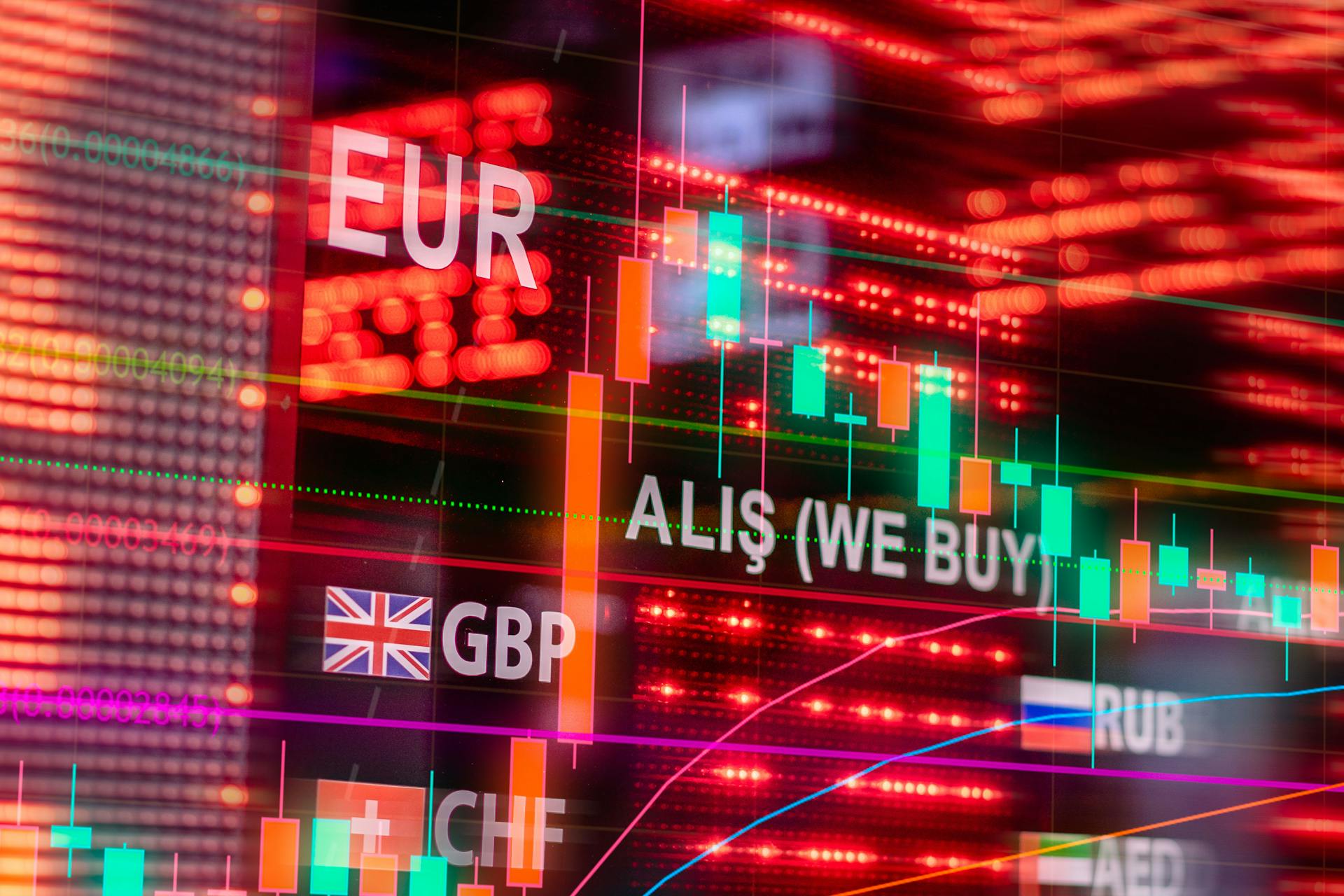
Currency trading is a complex and often misunderstood topic within the Islamic community. The question of whether currency trading is halal and compliant with Islamic rules has sparked debate and discussion among scholars and traders alike.
Islamic law prohibits the collection and payment of interest, known as riba, which is a fundamental aspect of traditional banking and currency trading. This principle is rooted in the Quran and hadith, where it is explicitly stated that riba is haram.
To navigate currency trading in a way that is compliant with Islamic rules, traders must carefully consider the underlying contracts and instruments used in the market. In the article, we explore the concept of murabaha, a permissible form of trade that allows for the sale of goods or currencies at a marked-up price.
The key to determining whether currency trading is halal lies in understanding the underlying principles of Islamic finance and the specific instruments used in the market. By examining the contracts and instruments used in currency trading, we can better understand whether they align with Islamic principles or not.
You might enjoy: Shariah Compliant Etfs
What is Halal in Currency Trading?
Halal currency trading involves trading with certain conditions that adhere to Islamic principles. This means engaging in transactions where the exchange of currencies occurs on a spot basis without any delay or interest payments.
Spot transactions with an immediate cash settlement are generally permissible in Islamic finance. This is because they align with the principles of avoiding interest (riba) and ensuring immediate settlement.
Direct currency exchanges that facilitate trade transactions can be considered halal, as long as they occur transparently and are grounded in genuine trade. Islam encourages trade and economic activities, making this type of exchange a viable avenue for economic engagement.
The primary objective of the exchange should be to facilitate real business activities rather than speculation. Any trading that lacks a clear purpose or legitimate exchange of goods or services becomes suspect under Islamic law.
Halal trading in forex involves trading with certain conditions, such as spot transactions with an immediate cash settlement, and those with a clear and legitimate purpose, such as exchanging goods and services.
Take a look at this: Spot Currency Trading
Rules and Guidelines
To trade currency halal, you must understand the rules and guidelines.
Riba, or interest, is prohibited in Islamic finance, so currency trading must be done through Shariah-compliant means, such as spot transactions or forward contracts.
A Shariah-compliant currency trader must also ensure that their transactions are transparent and free from manipulation.
Explore further: Sharia Compliant Finance
Qualifying as Hand-to-Hand
In order to qualify as "hand-to-hand" exchange, the buyer and seller must physically exchange the currency at the time of purchase.
This means that the exchange must happen immediately, without any delay or deferral. Online forex trading, on the other hand, often involves a delay in delivery or payment, which may not qualify as halal.
As a result, the physical exchange of currency is a crucial aspect of halal trading.
Suggestion: Are Etfs Halal
Standard
Standard accounts are a common sight in the trading world, but they often feature interest-related practices that can be a problem for Muslim traders.
Standard forex accounts frequently include swap points and interest payments, which can lead to entanglement with interest and veer away from halal practices.
Muslim traders are advised to seek alternatives that uphold ethical standards associated with Islamic finance, as standard accounts may not be suitable for them.
Standard accounts often prioritize financial gains over ethical considerations, which can be a concern for traders who value halal practices.
See what others are reading: Halal Index Funds
Forbidden Practices
Engaging in deceptive practices, such as providing false or misleading information about a product or service, is not allowed in Islamic trading.
The prohibition of Riba, or interest, is a cornerstone of Islamic financial practices. It refers to any form of interest gained on loans or financial transactions, which can render forex trading haram if it involves interest-related activities.
High levels of uncertainty or ambiguity in transactions, known as gharar, is prohibited. This includes contracts with unclear terms, hidden risks, or transactions that resemble gambling due to their speculative nature.
Charging or paying interest on loans is strictly forbidden in Islam, which also applies to swap transactions in forex trading. Therefore, it's essential to ensure that any forex trading account complies with Islamic rulings to avoid haram transactions.
Using non-public information to gain an unfair advantage in trading and violating the principles of transparency and fairness in the marketplace is not allowed in Islamic trading and is considered haram.
Forex trading that involves highly speculative and uncertain transactions, or those that resemble games of chance, would be considered haram.
Worth a look: Is Trading Stocks Haram
Deceptive Practices
Deceptive practices, such as providing false or misleading information about a product or service, are not allowed in Islamic trading.
These practices can compromise the integrity of transactions and harm other market participants.
In Islamic finance, transparency and due diligence are essential in ensuring contracts promote clarity and contained risks.
Muslim traders should prioritize proven methodologies rather than getting swept up in trends based solely on speculation.
Halal trading requires traders to avoid speculative and high-risk trades, focusing instead on long-term investments based on sound analysis and research.
Engaging in margin trading or leveraging positions beyond one's means is considered haram.
Excessive speculation, which involves high levels of uncertainty and resembles gambling, is discouraged in halal forex trading.
Gharar, or excessive uncertainty and ambiguity in financial transactions, is prohibited and can render a trade haram.
To align with Islamic principles, traders can utilize effective risk management techniques, ensuring that each trade is supported by clear data and tangible outcomes rather than impulsive decisions based solely on speculative instincts.
The Quran has categorically prohibited gambling, and Islamic finance encourages economic activities that positively contribute to society, discouraging speculative and uncertain practices.
You might enjoy: Islamic Banking and Finance in Canada
Insider
Using non-public information to gain an unfair advantage in trading is considered haram in Islamic trading.
This practice, known as insider trading, is a serious offense that violates the principles of transparency and fairness in the marketplace. It's a reminder that honesty and integrity are essential in all financial dealings.
In Islamic trading, it's essential to avoid any behavior that could be seen as exploiting knowledge or information not available to others. This includes using confidential information to make investment decisions.
The consequences of insider trading can be severe, not just for the individual involved but also for the integrity of the market as a whole. It's a risk that's simply not worth taking.
Short Selling
Short selling in Islam is a topic of debate, especially in conventional finance where it's widely accepted. Short selling involves borrowing an asset and selling it with the expectation of buying it back at a lower price to make a profit.
This practice raises ethical concerns in Islamic finance due to its speculative nature. In stock trading, short selling involves attempting to profit from a decline in stock value.
The interest element in stock trading short selling makes it haram (forbidden) in Islam. In Forex, short selling simply refers to making a trade in the hope that the price of a currency pair goes down.
There's no inherent borrowing element in Forex short selling, distinguishing it from its stock market counterpart. In Forex, making a short or long trade carries no fundamental difference.
Forex short selling doesn't require borrowing to execute transactions, making it clear that there's no issue with Forex short selling in Islam.
Consider reading: Is Bank Interest Haram in Islam
Sharia-Compliant Contracts
Clear contract terms are essential in halal trading, ensuring all parties understand the terms and conditions of the trade.
Halal trading emphasizes the importance of clear and transparent contract terms, but what does this really mean? In simple terms, it means that all parties involved in a trade must understand what they're getting into and what's expected of them.
A different take: Is Investing Halal
To ensure compliance with Islamic law, forward contracts must be structured to avoid Riba and Gharar. This means that forward contracts should be clear, transparent, and involve tangible assets rather than speculative bets on future price movements.
Forward contracts can be permissible if they're structured correctly, but it's not just about the contract itself – it's also about the broker you're working with. Choosing a Sharia-compliant broker is crucial for Muslim traders aiming for Sharia compliance.
A Sharia-compliant broker should openly disclose account types and present clear frameworks for handling overnight positions and swap-free mechanisms. This ensures that your trading activities align with Islamic principles.
Innovative Sharia-compliant products are being developed within the forex market, guided by Sharia principles. These products enable traders to pursue forex activities without compromising their beliefs.
The Salam contract, which allows for advance payment in sales of goods, may also find relevance within the forex framework. However, its use in forex requires a deep understanding of the nuances of currency exchanges to ensure compliance with Islamic principles.
The Istisna contract, which outlines a manufacturing agreement for goods to be produced, could also provide creative insights within forex trading contexts. By establishing currency transactions predicated on future exchanges, traders can ensure ethical engagement and remain within Islamic guidelines.
For another approach, see: Sharia Banking in America
Broker Selection and Account Types
Choosing a Sharia-compliant broker is crucial for Muslim traders. They should look for brokers explicitly offering Islamic or Sharia-compliant trading accounts.
To ensure compliance with Sharia principles, traders must verify that the broker's Islamic trading accounts avoid interest (riba) and other elements inconsistent with Islamic finance.
Not all brokers offer Islamic trading accounts, so it's essential to research and select a reputable one that meets your needs.
Traders should prioritize brokers who openly disclose account types and present clear frameworks for handling overnight positions and swap-free mechanisms.
Islamic trading accounts typically do not involve interest payments, so be aware of the broker's funding options and select those that align with Sharia principles.
When selecting a broker, consider their client support, payment options, and trading platforms.
Brokers that offer robust educational resources focus on responsible trading practices that can help build a community aware of Islamic restrictions.
Traders should opt for swap-free accounts to avoid interest-based transactions, ensuring no interest accrues on positions held overnight.
By choosing a reputable broker and selecting the right account type, Muslim traders can ensure that their currency trading activities are halal.
A unique perspective: How to Open a Currency Trading Account
Risk Management and Speculation
Halal forex trading discourages excessive speculation, which involves high levels of uncertainty and resembles gambling (maisir). It's essential to understand that speculation can lead to financial losses and fluctuations in the market, creating instability and uncertainty, which goes against Islamic principles of stability and predictability.
Excessive risk-taking (israf) is another aspect that halal trading discourages. Traders should prioritize prudence and responsible financial behavior to prevent undue financial harm. Strong risk management practices resonate with critical tenets of Islamic finance, prompting traders to cultivate awareness of their actions' wider implications.
To align with Islamic principles, traders should measure risks carefully and base decisions upon substantial analysis rather than uninformed guesses. This approach reinforces ethical conduct and diminishes the specter of speculation that can undermine trading legitimacy. By emphasizing risk management strategies, traders are better positioned to maintain Islamic ethical standards while actively participating in the dynamic forex market.
A different take: Day Trading Currency
Immediate Settlement (T+0)
Immediate settlement, also known as T+0, is a key principle in halal forex trading. It means settling trades on the same day, ideally, to avoid any delays or the accrual of interest.

This approach helps minimize the risk of Gharar, or excessive uncertainty, which can render a trade haram. By settling trades quickly, traders can avoid impulsive decisions based on speculative instincts.
In fact, the Quran emphasizes the importance of fairness and transparency in financial transactions. By adopting immediate settlement, Muslim traders can align their trading activities with Islamic principles.
Risk and Speculation
High levels of transactional ambiguity can be construed as Gharar, creating ethical concerns in the context of Islamic finance.
Excessive speculation is often linked to behavior that dismisses responsible trading practices, involving high levels of uncertainty and reliance on price movements driven by chance.
Speculative trading in forex can involve taking excessive risks without proper knowledge or analysis, which can lead to financial losses and fluctuations in the market.
Engaging in excessive gambling or speculative practices (maisir) in trading, where the outcome is uncertain and gains are based more on chance than on legitimate economic activity, is considered haram.
Minimizing Gharar is essential in forex trading, where speculation is intrinsic, and traders should adopt strategies that limit exposure to high risks, focusing instead on informed decision-making based on thorough analysis of market conditions.
To align with Islamic principles, traders can utilize effective risk management techniques, ensuring that each trade is supported by clear data and tangible outcomes rather than impulsive decisions based solely on speculative instincts.
Excessive risk-taking (israf) and speculation in forex trading can lead to financial losses and fluctuations in the market, which goes against Islamic principles of stability and predictability.
Strong risk management practices resonate with critical tenets of Islamic finance, prompting traders to cultivate awareness of their actions' wider implications and prioritize sustainability in their investments.
Hedging strategies, when responsibly applied, can serve as valuable tools for managing currency exposure without veering into speculative behavior, but should prioritize transparent intentions and robust risk management practices.
Readers also liked: Currency Trading Strategies
Sharia Law Investments and Finance
Sharia law investments refer to financial products and services that comply with Islamic laws and principles. For Muslim investors, it's essential to ensure that their investments are halal or permissible under Islamic law.
Musharakah and Mudarabah are partnership structures in Islamic finance that promote risk-sharing and avoid fixed, predetermined returns that resemble interest. Sukuk, or Islamic bonds, represent ownership in tangible assets and share risk and gains rather than interest-bearing debt.
Islamic mutual funds invest per Sharia principles, avoiding businesses involved in activities like gambling, alcohol, and interest-based transactions. These funds typically undergo screening to ensure compliance with Islamic ethics.
Sharia-compliant investing involves screening stocks to ensure they adhere to Islamic principles. Companies with high levels of debt, involvement in interest-bearing activities, or non-compliance with ethical standards may be excluded.
Investing in real estate is generally allowed in Islam, provided the transaction adheres to Islamic financing principles. Interest-free financing and avoiding speculative practices are essential considerations.
Curious to learn more? Check out: Islamic Auto Financing Usa
Takaful is an Islamic alternative to conventional insurance, operating on mutual cooperation and shared responsibility, avoiding interest and uncertainty.
Exchange-traded funds (ETFs) adhering to Islamic finance principles are available, allowing investors to gain exposure to Sharia-compliant assets. These ETFs typically follow specific screening criteria to ensure compliance.
Investments in educational ventures that align with ethical and Islamic values are generally encouraged. Supporting initiatives that promote knowledge and ethical conduct is consistent with Islamic finance principles.
Here are some key principles of Sharia-compliant investing:
- Halal investments: Islamic finance encourages investments in activities that align with Sharia principles, promoting ethical and socially responsible financial practices.
- Fair wealth distribution: A key principle involves fair and equitable wealth distribution, emphasizing economic justice and the well-being of the community.
- Avoidance of speculation: Islamic finance discourages speculative practices that resemble gambling, enabling thoughtful and informed decision-making in financial transactions.
Country-Specific Regulations
Malaysia allows forex trading for Muslims, but only through Islamic banks or financial institutions that comply with Sharia law principles such as no interest-based transactions and no speculation.
In the UAE, forex trading is legal for Muslims as long as it's done through an Islamic account that complies with Sharia law, with no interest or swap fees and no speculative behavior.
Indonesia permits forex trading for Muslims through brokers registered with the Indonesian Futures Exchange Supervisory Board and having obtained a fatwa from the Indonesian Ulema Council, confirming Sharia law compliance.
Turkey allows forex trading for Muslims, but only through brokers regulated by the Capital Markets Board and offering Islamic accounts that comply with Sharia law, with no interest or rollover fees.
Suggestion: Sharia Banking System
Malaysia
Malaysia has a unique approach to forex trading for Muslims, making it one of the few countries to have legalized it.
To engage in forex trading in Malaysia, a Muslim must conduct transactions through Islamic banks or financial institutions.
These institutions must comply with Sharia law principles, which means no interest-based transactions and no speculation.
This requirement ensures that forex trading in Malaysia aligns with Islamic values and principles.
UAE
In the UAE, forex trading is legal for Muslims as long as it is done through an Islamic account that complies with Sharia law. This means that the account should not charge any interest or swap fees.
Forex trading in the UAE must not involve any speculative behavior, which is a key aspect of Islamic finance. This approach is designed to minimize risk and ensure that transactions are conducted in a responsible manner.
Islamic accounts in the UAE are specifically designed to adhere to Sharia law, making forex trading accessible to Muslims in the region.
Worth a look: Open Currency Trading Account
Indonesia

In Indonesia, forex trading is allowed for Muslims, but only through specific brokers.
These brokers must be registered with the Indonesian Futures Exchange Supervisory Board.
To ensure compliance with Sharia law principles, they also need to obtain a fatwa from the Indonesian Ulema Council.
Curious to learn more? Check out: Forex Brokerage Firms
Turkey
Turkey permits forex trading for Muslims, but only through brokers that are regulated by the Capital Markets Board and offer Islamic accounts that comply with Sharia law.
These accounts do not charge any interest or rollover fees, making them a more suitable option for traders who adhere to Islamic principles.
In Turkey, forex trading is subject to local laws and regulations, so traders should be aware of these requirements to avoid any issues.
It's worth noting that not all countries are as accommodating, and some like Saudi Arabia and Iran have stricter laws that prohibit forex trading altogether.
Conclusion and Final Considerations
Consistently utilizing effective risk management techniques can create a portfolio that's congruent with Islamic principles, enjoying profitable returns without compromising faith.
Many Muslim traders have found success in forex by committing to ethical trading principles, such as emphasizing transparency in transactions and using Islamic forex accounts.
Trading as a Muslim requires aligning with Islamic principles, which can be achieved by staying disciplined with respect to ethical guidelines.
By prioritizing transparency and using Islamic forex accounts, Muslim traders can significantly mitigate the risks associated with interest and speculation, leading to sustainable success.
Emphasizing transparency in transactions is a key aspect of trading as a Muslim, allowing for a more secure and trustworthy experience.
Sources
- https://blueberrymarkets.com/market-analysis/is-forex-trading-halal-or-haram/
- https://www.linkedin.com/pulse/forex-currency-trading-halal-haram-islam-review-techol-fqg9c
- https://therobusttrader.com/is-forex-trading-halal-in-islam/
- https://www.investing.com/brokers/guides/forex/is-forex-haram-an-islamic-perspective-on-forex-trading/
- https://www.thearmchairtrader.com/forex-trading-halal-or-haram/
Featured Images: pexels.com


